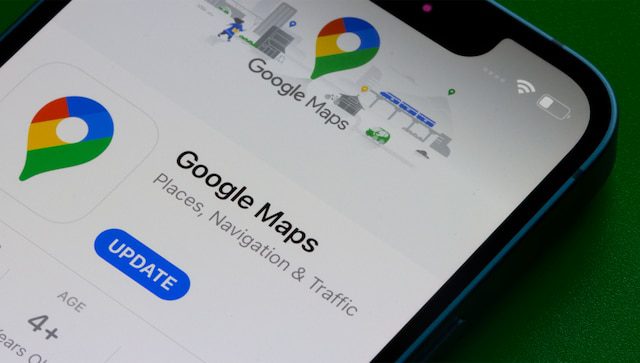Google moves to end geofence warrants, The quantity of court cases involving requests for geofences has increased dramatically in recent years.
Soon, Google will let users save location data on their own devices instead of on Google servers, putting an end to a long-standing monitoring practice that allowed law enforcement and the police to utilize Google’s enormous location databanks to find possible criminals.
Due in large part to the widespread use of smartphones and data-hungry firms like Google that collect and store vast amounts of user location data, which may be accessed by law enforcement upon request, the use of so-called “geofence warrants” has skyrocketed in recent years.

Authorities have the authority to obtain reverse-location warrants, often referred to as geofence warrants, which compel Google to provide details on which users’ devices were in a specific location at a specific time.
However, detractors claim that because geofence orders frequently request the personal information of people who were completely innocent and in the area when a crime was committed, they are unconstitutional and inevitably very wide. The inability of the courts to reach a consensus regarding the legality of geofence warrants is likely to lead to a challenge at some point before the US Supreme Court.
Also see: Elon Musk xAI Rolls Out Grok AI Chatbot to X Premium+ Subscribers in the US
In its announcement this week, Google said that storing location data on devices will provide customers “more control” over their data, without particularly mentioning geofence warrants. Rather than requesting the data from Google, the action compels law enforcement to apply for a search warrant to obtain access to that particular device.
Although it is not the only business that can be served with a geofence warrant, Google has been the primary source of sensitive location data and the first to be requested for it.
In 2019, it was first made public that police were using Google to obtain location data from consumers. For many years, Google’s advertising business has been powered by the location data of its users. In 2022 alone, this industry generated over 80% of Google’s yearly sales, or $220 billion.
However, it is believed that this monitoring method is much more widespread in practice. Later, law enforcement began to demand location data from other businesses. Although neither Microsoft nor Yahoo—which owns TechCrunch—have yet to reveal the number of requests they receive for user location data, it is known that they obtain geofence warrants.
The quantity of court cases involving requests for geofences has increased dramatically in recent years.
Minneapolis police utilized a geofence warrant to track down protestors after George Floyd was killed by police. Fears that law enforcement in jurisdictions where access to abortion care is restricted or where seeking an abortion is illegal may employ geofence warrants to locate persons who seek care arose after Roe v. Wade was overturned in 2022. Following that, lawmakers pushed Google to cease gathering location data out of concern that it would be used to identify those seeking abortions.
Google, Microsoft, and Yahoo last year supported a New York state measure that would have outlawed the use of geofence orders throughout the state, despite the corporations’ silence on the number of such warrants they obtain. The bill was not enacted into law.
The number of geofence warrants that Google has gotten in recent years is unknown. Following pressure to release the numbers in response to growing criticism of the spying technique, Google made its most recent (and only) statement about the number of geofence warrants it received in 2021 available online.
Approximately 25% of all legal demands that Google got were represented by the data, which indicated that the company received 982 geofence warrants in 2018, 8,396 geofence warrants in 2019, and 11,554 geofence warrants in 2020. Although the disclosure was restricted, it provided the first insight into the dramatic increase in these requests. However, Google did not specify how frequently, if at all, it challenges these lawful requests for users’ location data.
There was cautious applause when it was announced that Google would soon transfer its users’ location data to their devices.
In a blog post, the Electronic Frontier Foundation declared that “for now, at least, we’ll take this as a win.” The foundation has contested the legitimacy of geofence warrants in court. However, the EFF pointed out that Google may still be able to provide sensitive personal information about its customers in other ways. Similar court orders known as “reverse keyword” warrants are used by law enforcement to locate Google accounts that have performed searches for a specific keyword at a specific point in time, such as before a crime was committed. Regarding the gap that permits law enforcement and police to serve so-called “reverse keyword” warrants for users’ search queries, Google has not stated if it intends to close it.
That’s not to say geofence warrants won’t expire quickly. Large databases of past location data are still kept by Google, which the police can access at any moment until the company decides it no longer wants to preserve them. Additionally, even while digital corporations maintain enormous databases of user location data, they may also face comparable legal needs.
However, there is hope that Google’s decision to close the geofence warrant gap could greatly reduce this spying loophole, at least going ahead.
According to Apple’s most recent transparency report from 2022, the company received 13 geofence warrants requesting location data from its users but gave no data in exchange. Since the data is stored on customers’ devices, which Apple claims it cannot access, Apple stated that it “does not have any data to provide in response to geofence requests.”















